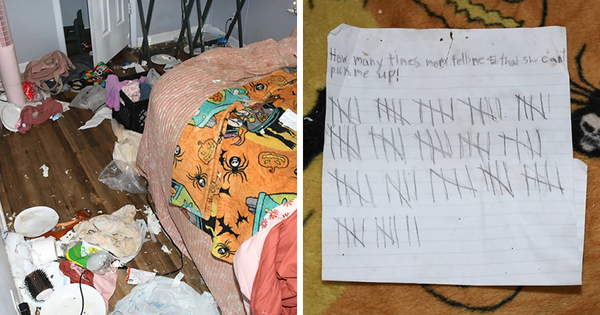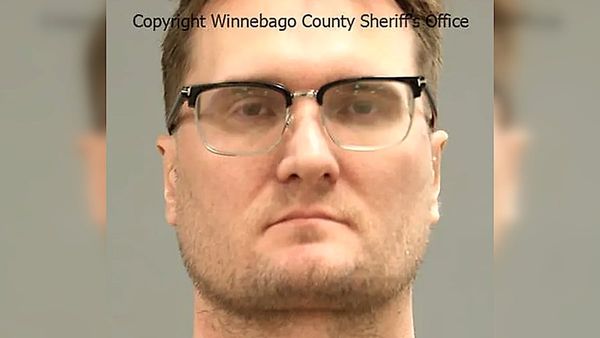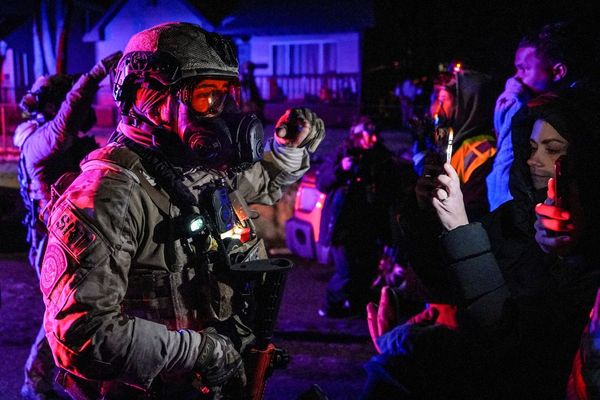
It’s a measure of Ruth Wilson’s talent that she utterly convinces as Josie Hogan, the spirited, rough-talking, Irish-American “ugly, overgrown lump of a woman” in Eugene O’Neill’s 1923-set romantic tragedy, despite being completely physically wrong for the part. Her Josie is intensely physical, brandishing her independence like a pitchfork or a pickaxe handle, attacked by sudden hiccups of laughter but capable of a whispering softness and a galling, contained grief.
Wilson is well-matched in Rebecca Frecknall’s starkly involving and surprisingly funny revival by the fine character actor Michael Shannon. The two-time Oscar nominee and stage veteran brings a drawn, agonised weariness to Jim Tyrone, the self-annihilating, whoremongering drunk who owns the rundown Connecticut farm where Josie and her father Phil (David Threlfall) – another catastrophic boozer – scratch a living. It’s a wonder anything got done in O’Neill’s vision of Prohibition-era America given how much hooch everyone’s slamming back and how much they talk.
Jim loves Josie but won’t inflict his moral turpitude on her. Josie loves Jim but insulates herself from hurt by perpetuating the myth she’s had every man in the neighbourhood. Ownership of the farm, and Jim’s coming inheritance from his adored, dead mother – plus the tendency of this trio to dupe and hoodwink each other – complicate matters. The first half of the play is mostly banter as Josie and Phil, and later Jim, spar their way through familiar arguments. The second sees Josie and Jim try and fail to connect. It’s three hours long and utterly mesmerising.
.jpg)
I’m describing the plot as the play is rarely done: the last major London revival was in 2006. It’s a sequel to the better-known Long Day’s Journey Into Night, and both are nakedly autobiographical, O’Neill stipulating they shouldn’t be staged till 25 years after his death.
These dramas are soused with poetry, deep feeling and regret but they are also verbose and emotionally overwrought. Like Tennessee Williams, O’Neill likes to put his characters repeatedly through the wringer. Time and again here Josie and Jim seem about to break through or break out of their state of perpetual anguish, only for the playwright’s remorseless hand to haul them back in.
Frecknall has mounted revelatory stagings of three Williams plays in the last ten years and now turns her acute eye on his predecessor. She eschews some of her favoured techniques (modern dress, choreographed movement) in favour of pared-back simplicity. Designer Tom Scutt gives us a circular wooden platform ringed with lumber and ladders echoing the curve of the Almeida Theatre’s back wall. Above, two hoop-shaped rigs hold tracking spotlights that bathe the characters in unforgiving moonlight and an eventual warm dawn.
Frecknall leans into the ribald comedy of the first half, not least by casting Threlfall. Bearded and shag-haired like an Old Testament prophet, he throws himself with scenery-chewing relish into Phil’s soused, cantankerous blarney. He and Wilson have the ease of a practiced double-act, especially when wrong-footing and humiliating the Hogans’ rich neighbour (Akie Kotabe).
In the second half the play’s profligate sadness is given equal rein, Josie and Jim warily circling, afraid of doing damage or being damaged. Wilson and Shannon prove as expressive in moments of stillness as they are in full-flight emotion. The sequence where Josie cradles the stricken but sleeping Jim is unbearably poignant, both actors absolutely inhabiting their characters and in the moment. This is a chance to see a challenging American classic with great clarity.
A Moon for the Misbegotten at the Almeida Theatre, until 16 August, tickets and information here.







